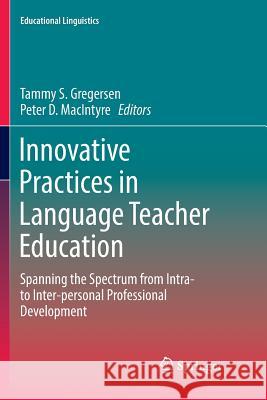Innovative Practices in Language Teacher Education: Spanning the Spectrum from Intra- To Inter-Personal Professional Development » książka
topmenu
Innovative Practices in Language Teacher Education: Spanning the Spectrum from Intra- To Inter-Personal Professional Development
ISBN-13: 9783319847412 / Angielski / Miękka / 2018 / 268 str.
Innovative Practices in Language Teacher Education: Spanning the Spectrum from Intra- To Inter-Personal Professional Development
ISBN-13: 9783319847412 / Angielski / Miękka / 2018 / 268 str.
cena 684,33
(netto: 651,74 VAT: 5%)
Najniższa cena z 30 dni: 655,41
(netto: 651,74 VAT: 5%)
Najniższa cena z 30 dni: 655,41
Termin realizacji zamówienia:
ok. 16-18 dni roboczych.
ok. 16-18 dni roboczych.
Darmowa dostawa!
Kategorie:
Kategorie BISAC:
Wydawca:
Springer
Seria wydawnicza:
Język:
Angielski
ISBN-13:
9783319847412
Rok wydania:
2018
Wydanie:
Softcover Repri
Ilość stron:
268
Waga:
0.40 kg
Wymiary:
23.39 x 15.6 x 1.52
Oprawa:
Miękka
Wolumenów:
01
Dodatkowe informacje:
Wydanie ilustrowane











